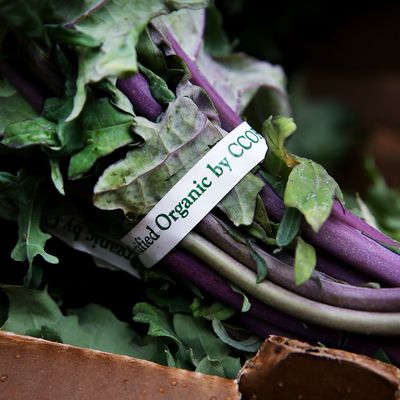
Demand for organic food is outstripping supplies, and that’s finally got Big Food investing its megabillions in ways to convince farmers to please abandon the conventional produce the industry has relied on for decades. Have these megacompanies finally realized they need to prioritize the environment over the bottom line? Of course not. Profit is the driver: The price of organics has hit a 47 percent premium, and sales were up 11 percent in the last year (roughly four times the overall growth industry-wide), so it just makes good business sense to go organic.
Experts actually say organic sales would have risen more if there had been more organic products to actually sell. The biggest hurdle farmers face in switching are the upfront costs, which can be arduous: Unlike other popular food-label terms, “organic” is of course federally regulated. Growers have to pay inspection fees and can’t use genetically modified seeds or synthetic chemicals, meaning lots of old-school crop rotation and composting. Labor costs climb, and output is often lower. The government also requires a three-year transition period, framed as sort of a conventional-farming cleanse where farmers act like everything’s organic but can’t use the actual term on their products or reap any of the financial benefits.
As an incentive to switch, the giant food brands are now subsidizing the transition process. For instance, Ardent Mills, a flour brand owned largely by Cargill and ConAgra, pays farmers a premium for crops grown on the land that hasn’t been certified yet, and Kashi, which is owned by Kellogg, has started a “Certified Transitional” label to get the in-betweeners higher prices for products in stores. Last month, Kellogg also announced a $100 million venture-capital fund with the aim of courting food techies, a group already sold on organics, who can dream up “significant sources of growth for us.”
There are valid concerns when Big Food gobbles up smaller organic companies, but, hey, maybe a conspiracy to quietly swap out their all-natural ingredients for factory-made crap isn’t one of them anymore.




